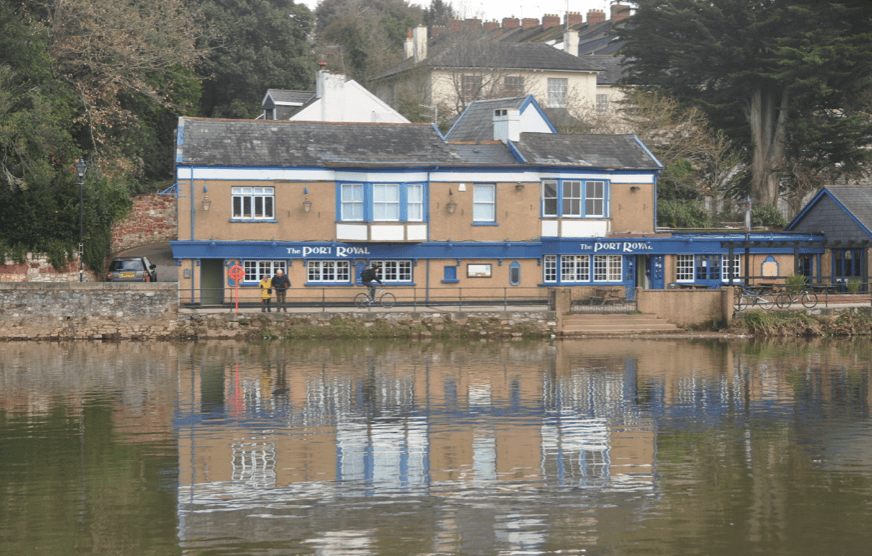
Could embracing Bitcoin benefit Exeter's tourism?
Exeter is a quaint little place on the South Coast of England. The U.K is the world’s sixth most visited country in terms of tourism, with around 40 million sightseeing foreigners flocking to our island each year, and much of Exeter’s trade comes from such tourism.
With its stunning cathedral, intriguing underground passages and the Royal Albert Memorial Museum (to name a few), Exeter boasts an array of different attractions and sights for tourists to visit. That’s not even to mention the scenic views that the magnificent, surrounding countryside offer.
Bitcoin does not boast similar views of beauty, and has little in relation to Exeter. It has become a symbol of the future in the financial world. Bitcoin is the pioneer for cryptocurrency, and since its inception has been studied religiously by intrigued onlookers fascinated to see what journey it will take as it evolves.
In the grand scheme of things, Exeter and Bitcoin are fairly unrelated. But could the latter significantly aid the former in a revolutionary way?
What is Bitcoin?
Bitcoin is the most popularly-traded and well known cryptocurrency. A cryptocurrency is a virtual currency that doesn’t exist in a physical form - although token novelties of Bitcoin have been made. Each Bitcoin is essentially a code that translates to a certain value.
Most transactions and marketplaces that accept Bitcoin are online sites. There is still a lot of hesitation towards cryptocurrencies, with few high street shops accepting it as a form of payment, and the currency itself even banned in some countries.
It’s unique in the sense that each transaction made is publicly available on something called a blockchain. This means that every transaction can be traced and theft is therefore near impossible.
How is it being used at present?
Many people trade and acquire Bitcoin as an investment. They believe the value of it will increase - as it has done rather drastically in the past - and they will make a good return on investment.
In the U.K, only a handful of shops accept Bitcoin payment for goods and services. Further afield though, in Las Vegas and its casinos, Bitcoin has been embraced. Certain casinos in Vegas have began accepting Bitcoin as a form of currency, and have subsequently seen a rise in revenue generated from the cryptocurrency being used in restaurants and shops within the complexes.
It has to be said that casinos will get a certain clientele that are perhaps more susceptible or embracing of being able to use Bitcoin when available, but should places in Exeter take similar action by accepting Bitcoin, there is little downside and revenues would surely increase.
Negatives of Bitcoin
Some negatives do exist though. Like any other traditional currency, Bitcoin is subject to variance. However, in comparison to the British pound for example, Bitcoin is far more sensitive to external factors. This is simply down to the fact that Bitcoin’s strength, again like any other currency, is based on the confidence of consumers. Being a virtual currency that, crucially, is unproven in any long-term market, having only existed since 2009, a lot of scepticism still remains over it.
Also, with it not being ingrained into society like other currencies, the volatile nature of Bitcoin could lead to a complete crash of the market. This, in fact, is what many experts predict will eventually happen. Its exponential growth from $250 in mid-2015, to its peak of just shy of $20000 in December 2017, means that a crash is inevitable at some point due to natural market forces causes a bubble crash. With Bitcoin currently worth around $4700, the crash has arguably already happened, but another one could follow, completely destroying the market. Equally, Bitcoin’s popularity could again saw and even hit six figures in the future.
Could it impact upon Exeter’s tourism?
At the end of the day, tourism is generated by history, landmarks and events. Bitcoin falls under none of those categories, yet could still benefit tourism revenue similarly to what was seen in Las Vegas. Two independent places in Exeter, Port Royal pub and Devon Coffee cafe are notably already known to accept Bitcoin, with the former even installing a Bitcoin ATM this summer. According to the owner, business has significantly improved as a consequence.

Caption: Port Royal, Exeter, is one of the only places in the whole of South West England with a Bitcoin ATM. Photo by Nilfanion // CC BY-SA 4.0.
With few other places offering Bitcoin in the area, or even the county, people would continue to flock to Exeter were it made a so-called Bitcoin Mecca. The closest places where it’s accepted is said to be London and Bristol. In being the first city to fully embrace the cryptocurrency (Bitcoin is still a scarcity even in London), Exeter would embed itself in financial history. It would definitely attract people to the area.
Where foreigners would usually have to exchange currency into the pound, Bitcoin acts as an international commonality. It could alone draw an increase in visitors to Exeter, and once they come they will enjoy the fine scenery, natural beauty and stunning landmarks that the city has to offer - and potentially stay for longer or revisit the area. There really aren’t too many downfalls to embracing Bitcoin, and seeing as were it to happen, Exeter would be one (if not the) first city to do so, the positives could be huge.




















